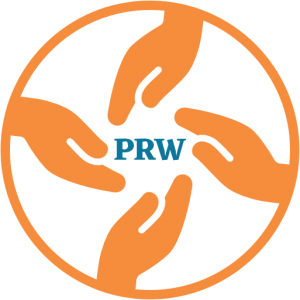Kim S. Cameron
William Russell Kelly Chair of Management and Organizations; Professor of Higher Education
Co-founder, Center for Positive Organizations
Stephen M. Ross School of Business
University of Michigan
kim_cameron@umich.edu
Website
Related Research Interests
My own work centers on the positive relationships that are produced and that emerge in organizations as a result of certain practices. These include, in particular, Caring (People care for, are interested in, and maintain responsibility for one another as friends.) Compassionate Support (People provide support for one another including kindness and compassion when others are struggling.) Forgiveness (People avoid blame and forgive mistakes.) Inspiration (People inspire one another at work.) Meaning (The meaningfulness of the work is emphasized, and people are elevated and renewed by the work.) Respect, Integrity, and Gratitude (People treat one another with respect and express appreciation for one another. They trust one another and maintain integrity.) Positive Energy (People uplift, elevate, and are life-giving to others with whom they work.) These factors have been measured empirically and found to produce extraordinarily positive individual and organizational performance.
Related Publications
- Kim S. Cameron and Arran Caza (2002) “Organizational and leadership virtues and the role of forgiveness.” Journal of Leadership and Organizational Studies, 9: 33-48.
- Kim S. Cameron (2003) “Organizational virtuousness and performance.” In Kim S. Cameron, Jane E. Dutton, and Robert E. Quinn (Eds.) Positive Organizational Scholarship: Foundations of a New Discipline. (pp. 48-65) San Francisco: Berrett-Koehler.
- Kim S. Cameron, David Bright, and Arran Caza (2004) “Exploring the relationships between organizational virtuousness and performance.” American Behavioral Scientist, 47: 766-790.
- Arran Caza, Brianna A. Barker, Kim S. Cameron (2004) “Ethics and ethos: The buffering and amplifying effects of ethical behavior and virtuousness.” Journal of Business Ethics, 52: 169-178.
- Kim S. Cameron and Arran Caza (2005) “Developing strategies for responsible leadership,” In Jonathan P. Doh and Stephen Stumph (Eds.) Handbook on Responsible Leadership and Governance in Global Business. (pages 87-111) New York: Oxford University Press.
- Jody Hoffer Gittell, Kim S. Cameron, Sandy Lim, and Victor Rivas (2006) “Relationships, layoffs, and organizational resilience.” Journal of Applied Behavioral Science, 42: 300-328.
- David S. Bright, Kim S. Cameron, and Arran Caza (2006) “The amplifying and buffering effects of virtuousness in downsized organizations.” Journal of Business Ethics, 64: 249-269.
- Edward H. Powley and Kim S. Cameron (2006) “Organizational healing: Lived virtuousness amidst organizational crisis.” Journal of Management, Spirituality, and Religion, 3: 13-33.
- Kim S. Cameron (2006) “Forgiveness in organizations.” In Cary L. Cooper and Debra L. Nelson (Eds.) Positive Organizational Behavior: Accentuating the Positive. (pp. 129-142) London: Sage.
- David Vanette and Kim S. Cameron (2009) Implementing Positive Organizational Scholarship at Prudential. Ross School of Business, William Davidson Institute.
- Kim Cameron, Carlos Mora, Trevor Leutscher, and Margaret Calarco (2011) “Effects of positive practices on organizational effectiveness.” Journal of Applied Behavioral Science, 47(3): 266 — 308.
